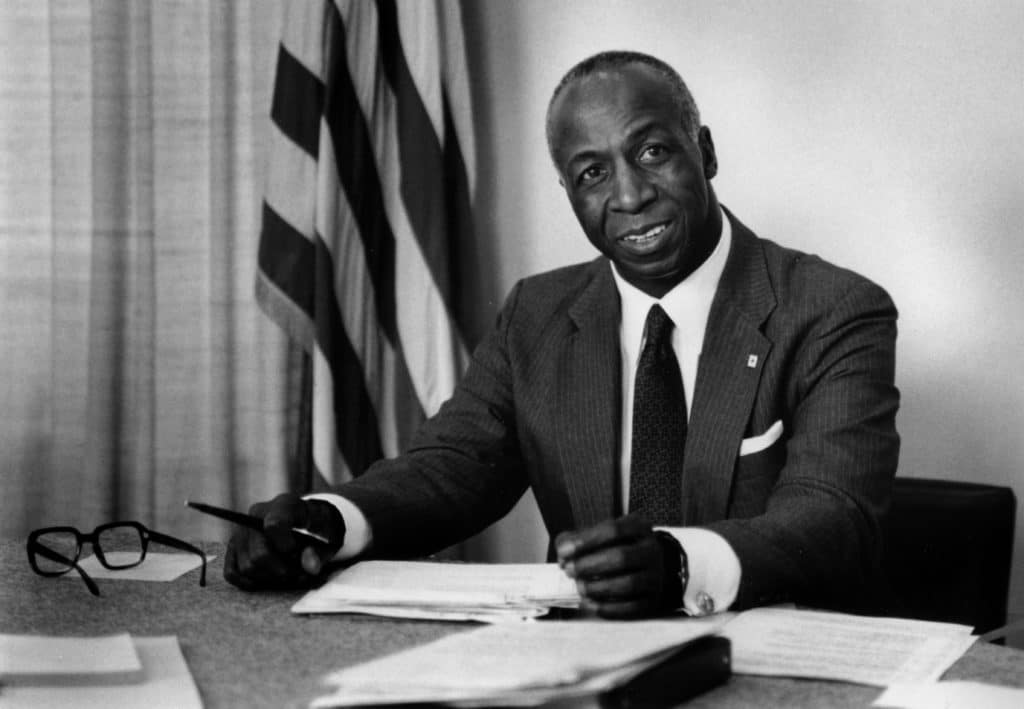This Black History Month, we’re honoring Black men and women whose contributions were essential to our history. Meet Dr. Jerome H. Holland, a passionate advocate for blood research and a leader of our Blood Services program.
Born Jerome Heartwell “Brud” Holland on Jan. 9, 1916 in Auburn, NY, Jerome was one of 13 children. In 1935, he attended Cornell University where he became the first African American to play for the university’s football team. He was even chosen to be an All-American athlete at Cornell in 1937 and 1938.
In addition to being a dedicated athlete, Dr. Holland was also an exceptional student. He graduated with his undergraduate degree from Cornell in 1939 and immediately entered a graduate program to study sociology. He graduated with his master’s degree in 1941.
In 1950, Dr. Holland continued his education and went on to earn his Ph.D. from the University of Pennsylvania. Three years later he was named president of Delaware State College where he served from 1953 to 1959. In 1960, he became president of what is now known as Hampton University (formerly Hampton Institute).
During his time at Hampton University in 1964, Dr. Holland became a member of the American Red Cross Board of Governors. He served as a member until he resigned in 1970 to become the U.S. Ambassador to Sweden. He was the second African American to lead a delegation in any European nation.
Dr. Holland was later appointed by President Jimmy Carter to be the chairman of the American Red Cross Board of Governors in 1979, and was the first African American to hold this position. Because of his commitment to the Red Cross, he was appointed again in 1982. While serving on the board, Dr. Holland showed a passion for blood research and took the lead in consolidating growing laboratory operations for the Red Cross Blood Services program. He served on the board until he died from cancer in 1985.
To honor his devotion to the Red Cross, we named our biomedical research facility in Rockville, Md., the Jerome H. Holland Laboratory for the Biomedical Sciences. Today, this lab continues Dr. Holland’s legacy through the Red Cross Research Blood Program where blood is collected for research and used in studies for infectious diseases and testing methods to find ways to improve the collection and storage of blood components.
Thank you, Dr. Jerome H. Holland, for your important work to further the Red Cross mission.

